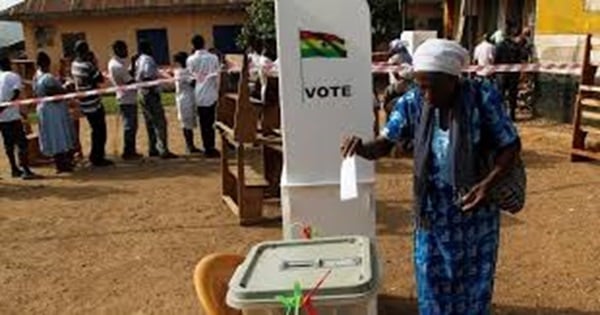The debate surrounding the election of Metropolitan, Municipal, and District Chief Executives (MMDCEs) in Ghana has gained renewed momentum, with the Minister-designate for Local Government, Ahmed Ibrahim, voicing his support for the election of these officials while simultaneously expressing his dissent regarding the proposal to conduct these elections along partisan lines. Mr. Ibrahim’s position underscores a critical juncture in Ghana’s political landscape, highlighting the complex interplay between local governance, political participation, and developmental aspirations. His advocacy for non-partisan MMDCE elections represents a departure from the current system of appointment by the President, a system often criticized for its potential to politicize local development and hinder the effectiveness of local governance structures.
The core of Mr. Ibrahim’s argument rests on the principle of fostering independence and autonomy within local governance. He posits that conducting MMDCE elections on a non-partisan basis would liberate these officials from the constraints of party politics, allowing them to focus on the specific developmental needs of their respective communities. This decoupling of local leadership from partisan affiliations, he argues, would create an environment where MMDCEs can prioritize local priorities over party agendas, leading to more effective and responsive local governance. The current system, where MMDCEs are appointed by the President and often seen as party loyalists, can create a perception of bias and potentially prioritize party interests over the needs of the local population. Non-partisan elections, in contrast, would theoretically empower MMDCEs to act as true representatives of their communities, accountable primarily to the local electorate rather than to a political party.
Mr. Ibrahim’s position echoes a long-standing debate within Ghana’s political discourse. The issue of electing MMDCEs has been a subject of contention between political parties, with differing views on the optimal approach to structuring local governance. The debate reflects broader questions about the balance of power between centralized and decentralized governance, the role of political parties in local development, and the best mechanisms for ensuring accountability and responsiveness within local government structures. The current system, with its emphasis on presidential appointments, centralizes power and arguably limits local autonomy. Shifting towards elected MMDCEs, regardless of the partisan nature of the elections, would represent a significant devolution of power and potentially enhance local participation in decision-making processes.
The potential benefits of non-partisan MMDCE elections, as envisioned by Mr. Ibrahim, extend beyond simply freeing these officials from party pressures. He argues that such a system would foster a greater sense of community ownership over local development initiatives. By removing the partisan lens through which local projects are often viewed, non-partisan elections could encourage broader community participation in planning and implementation processes. This increased community involvement could lead to more relevant and sustainable development projects, as they would be driven by the specific needs and priorities of the local population rather than by external political agendas. Furthermore, non-partisan elections could potentially attract a wider pool of qualified candidates, including individuals who may be hesitant to engage in partisan politics but possess valuable expertise and experience relevant to local governance.
However, the proposal for non-partisan MMDCE elections is not without its potential challenges and complexities. One key consideration is the potential impact on political party mobilization and engagement at the local level. Political parties play a crucial role in organizing and mobilizing voters, and their involvement in local elections can contribute to increased voter turnout and greater public awareness of local issues. A completely non-partisan system could potentially diminish the role of parties in local governance, leading to lower voter engagement and potentially weakening the link between local and national political processes. Finding a balance between promoting independence and maintaining a vibrant local political landscape would be crucial in designing and implementing a system of non-partisan MMDCE elections.
Furthermore, the practical implementation of non-partisan elections would require careful consideration of various logistical and administrative aspects. Issues such as campaign finance regulations, candidate eligibility criteria, and voter education campaigns would need to be addressed to ensure a fair and transparent electoral process. The absence of party affiliations could also make it more challenging for voters to assess candidates and their platforms, potentially leading to greater reliance on personal networks and local influence rather than on policy positions and political ideologies. Addressing these challenges effectively would be crucial for ensuring the success and legitimacy of any system of non-partisan MMDCE elections in Ghana. The debate surrounding the future of local governance in Ghana highlights the ongoing evolution of democratic processes and the search for mechanisms that best serve the needs of local communities while maintaining a vibrant and accountable political system.


